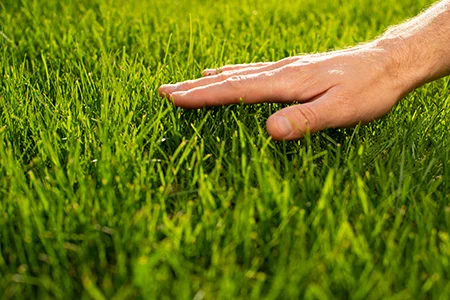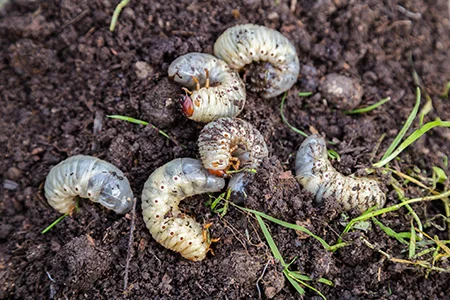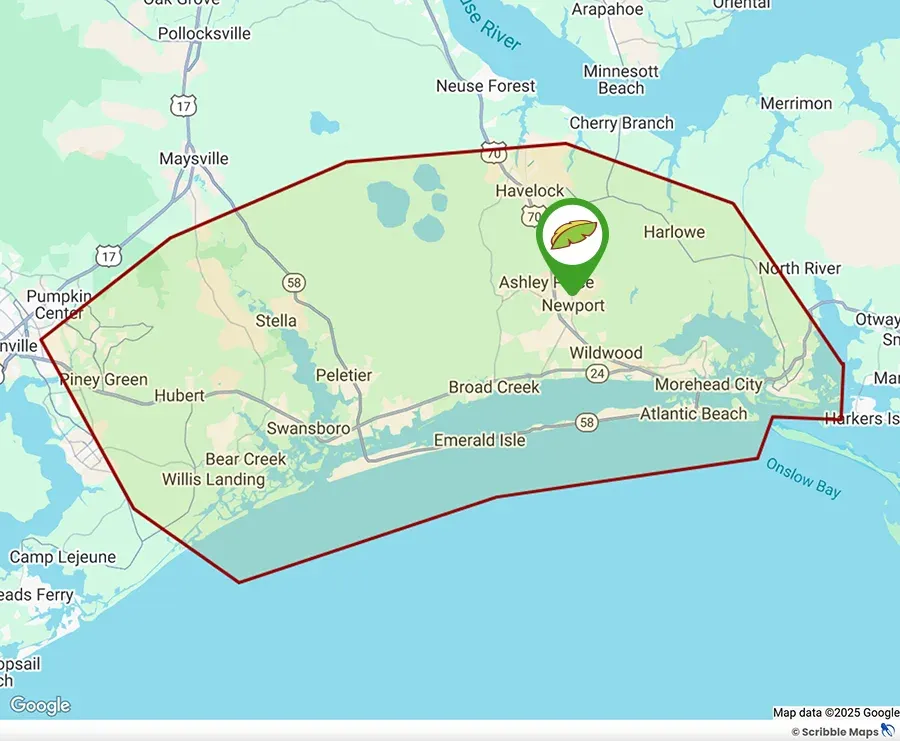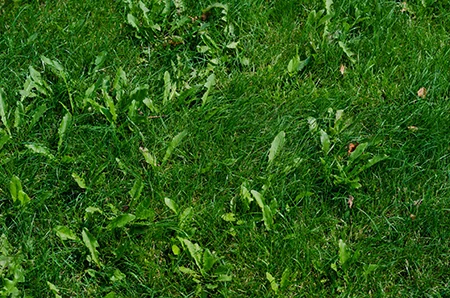Lawn Care in Eastern North Carolina
Is your lawn struggling with weeds, pests, and uneven growth? Our comprehensive lawn care program tackles these issues head-on. At Wood Lawn & Landscaping, we've been perfecting lawns in Carteret and Onslow Counties for 20 years. Our year-round lawn care service is designed to keep your grass healthy, green, and weed-free throughout all seasons. Our lawn care services include:
- Customized fertilization schedule
- Pre-emergent and post-emergent weed control
- Grub and mole control
- pH testing and soil analysis
- Optional fungicide treatments
- And more!
Top-Rated Team & Outstanding Results
Our team is highly rated for delivering exceptional lawn care services that consistently exceed expectations. We take great pride in our work, ensuring every lawn we care for is healthy, vibrant, and beautifully maintained. With a commitment to quality and attention to detail, we strive to provide outstanding results that earn the trust and satisfaction of our clients. Get started with a free quote today!
Plan Information
Designed for healthy, weed-free grass.
Grass Types Covered:
- Bermuda grass
- Centipede grass
- St. Augustine grass
- Zoysia grass
Weeds Treated:
Cool-season weeds: Henbit, white and yellow clover, dandelions, chickweed, and more
Summer weeds: Pennywort, spurge, wild onion, nutsedge, crabgrass, and more
Year-Round Care for a Healthy, Lush Lawn

A healthy lawn doesn’t happen by chance—it requires consistent, professional care throughout the year. Our comprehensive lawn care program ensures your grass gets the nutrients, weed control, and seasonal treatments it needs to thrive in Eastern North Carolina’s climate. With scheduled applications from February through December, we proactively prevent weeds, enhance soil health, and promote strong, lush growth.
What to expect from our lawn care process:
- We begin with a comprehensive lawn analysis to assess the overall health of your lawn and determine the most effective treatment plan for the year.
- Our seasonal fertilization program ensures your grass receives the right nutrients at the right time, promoting strong root growth and a lush, green lawn.
- We apply targeted pre- and post-emergent weed control treatments to prevent new weed growth and eliminate any existing weeds that may have already germinated.
- We follow a customized treatment schedule, beginning with a pre-emergent application in February and concluding with a Potash treatment at the end of the year to strengthen your lawn for the next season.
- Throughout the year, we provide pH testing and spot treatments to address any specific issues and ensure the soil conditions remain optimal for healthy grass growth.
Then, our pre- and post-emergent weed treatments target a variety of cool season and summer weeds:
- Cool Season Weeds: Henbit, White and Yellow Clover, Dandelions, Chickweeds, and more.
- Summer Weeds: Pennywort, Spurge, Wild Onion, Nutsedge, Crabgrass, and more.
Contact us today to get started with our lawn care package!

Say Goodbye to Grubs and Moles
Pests like grubs and moles can damage your lawn, causing unsightly damage and weakening your grass from below. That’s why our lawn care program includes grub and mole control to protect your turf from these hidden threats. By targeting grubs before they become a problem and implementing proven mole control strategies, we ensure your lawn stays healthy, strong, and free from destructive pests.
Why Choose Wood Lawn & Landscaping for Your Lawn Care Needs
By choosing Wood Lawn & Landscaping, you're investing in a healthier, more attractive lawn that enhances your property's value and your enjoyment of outdoor living. Our commitment to quality and customer satisfaction ensures that your lawn receives the best care possible, tailored to the unique needs of landscapes in the area. Here's part of what makes us great:
- Expertise in local soil and climate conditions.
- Customized treatment plans for each lawn.
- Use of high-quality and effective products.
- Consistent, scheduled treatments throughout the year.
- Knowledgeable technicians trained in the latest lawn care techniques.
Boost Nutrient Absorption with Professional Aeration
Core aeration is a vital service that keeps your lawn healthy by allowing air, water, and nutrients to penetrate deep into the soil. Over time, soil compaction and thatch buildup can suffocate your grass, leading to weak growth and poor health. Our core aeration service relieves this compaction, promoting stronger roots, better nutrient absorption, and a thicker, greener lawn. When combined with our comprehensive lawn care program, aeration enhances the effectiveness of fertilization and weed control, giving you the best results possible. Give your lawn the breath of fresh air it needs—schedule your core aeration today!
Lawn Care Near You
We are proud to be a local lawn and landscape company serving the Eastern North Carolina community with dedication and care. Rooted in the area, we take pride in enhancing the beauty of our neighbors’ outdoor spaces with reliable, high-quality services. See if we service your city!




